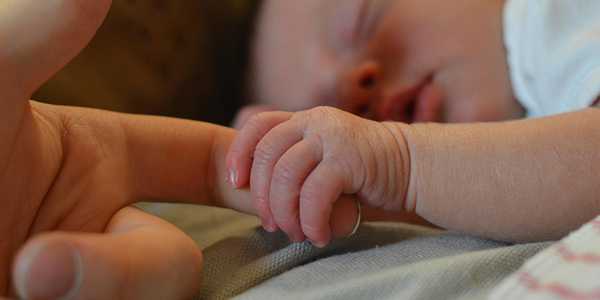Best Airline Rewards Programs for 2024: Enjoying Travel Perks
9 Essential Tips for Booking Your Destination Wedding Flights
Top IKEA Kitchen Designs to Inspire Your Next Remodel
How to Use an Air Fryer? Tips and Instructions for Beginners
Brainwaves: Is The Subconscious Mind Receptive Under Lambda Waves?
How to Nurture Mental Health for Busy Parents
Postpartum Self-Care: Prioritizing Mental Health for Moms
The mental and psychological mind of new moms after childbirth is known as postpartum mental health. In the motherhood journey, self-care is essential. After giving birth, many women feel satisfied and happy, but they may also struggle with mental health issues.
The mental and psychological mind of new moms after childbirth is known as postpartum mental health. In the motherhood journey, self-care is essential. After giving birth, many women feel satisfied and happy, but they may also struggle with mental health issues.
What we mean when we talk about new mothers' mental health after giving birth is their emotional and psychological stability. It directly affects the mother's capacity to care for both her and the infant, making it an essential part of postpartum care in general. Although many women feel elated and happy after giving birth, many also suffer from a range of mental health issues.

Common Struggles With Mental Health
Often, new mothers struggle with their mental health during their postpartum journey. Some of the common struggles are:
Postpartum Depression
It's a common mental health issue that many women experience after giving birth. Debilitating depression, a lack of motivation, and an inability to lift one's spirits are hallmarks of postpartum depression (PPD). Mothers may find bonding with their babies and completing everyday duties more challenging. Postpartum depression (PPD) strikes around one in seven women and can happen at any point in the first year following delivery.
Postpartum Anxiety
This is another mental health issue that new moms encounter. Excessive concern, agitation, and a persistent sense of unease are reasons for this disorder. It can be difficult for women to take care of themselves and their babies when postpartum worry disrupts sleep, food, and relaxation. Anxieties after giving birth can manifest physically in a variety of ways, including a racing mind, overthinking, trouble focusing, and even vertigo or palpitations.
Recognizing the symptoms of postpartum mental health issues is essential for healthcare practitioners and loved ones. However, it's important to understand that new moms and their babies can both benefit from early detection and treatment of mental health issues, which improves both the mother and the baby's health.
Mood Swing problems following childbirth
This is a serious and common postpartum mood disorder (popularly known as Baby Blues), including psychosis and bipolar disorder. Hallucinations, crying, delusions, and disorganized thinking are symptoms of postpartum psychosis, in contrast to the dramatic mood swings seen in postpartum bipolar illness.
During this phase, hormonal changes happen, leading to a lack of sleep; also, new mom needs to identify their mental health struggles early so they can ask for professional help. The postpartum mood is treatable. Please do not shy away from getting help from a professional.

Tips For Self-Care During Postpartum
Prioritizing self-care is essential for new mothers to keep their mental health in check. Taking care of your mental health is crucial for you and your baby, but it cannot be easy to create time for yourself when you're a mother. Here are some helpful hints for making self-care a priority:
Ask For Help
Be bold enough to ask your partner, family, or friends for help; this is a brilliant way to delegate tasks to avoid burnout. To make more time for yourself, delegate responsibilities like babysitting, cooking, grocery shopping, or housekeeping.
Define Your Limits
Tell your loved ones what you need from them and set firm limits. Make them aware of when you need time to yourself or assistance with specific tasks.
Put Self-care on Your Calendar
Include self-care in your daily or weekly schedule without fail. Schedule time to do things that make you happy and calm down, like reading a book, taking a bath, taking a yoga class, or watching movies. Make sure to engage in what you love to find fulfilment and happiness.
Get Enough Sleep
Your mental health will suffer greatly if you don't sleep enough. Take naps while your baby sleeps, or have your partner/family member or a friend nurse your kid at night if you can't sleep enough.
Try Reaching Out to Other Moms
Whether through a support group or just making new friends, finding other moms going through the same things can help ease the transition. Talk to each other, ask for help, and share stories.
Remember! Practising self-compassion is key, and be kind to yourself. Recognize that you are making an effort and rejoice in the little successes. If you put your mental health first by making time for self-care a priority, you'll be able to give your infant the best care possible. Taking care of oneself is a necessity; it's essential to prioritize self-care, your well-being, and resilience as a mother.
Significance of Taking Care of Yourself
As a new mother, you may feel overwhelmed by caring for your baby. On the other hand, you must know that taking care of yourself is essential to your mental health. To practice self-care, you must prioritize your needs and create time to pursue what makes you happy and calm. The difficulties of parenthood are easier to bear when you make self-care a priority.
Feelings of helplessness and overwhelm are normal for new mothers. You should be gentle with yourself and remember you are making an effort. Keep your expectations reasonable, and don't compare yourself to other people. Remember that parenting is a process, not a destination and that every mother's path is different.

Tips for Taking Care of Yourself
Prioritizing self-care is essential for new mothers to keep their mental health in excellent shape. Here are some helpful self-care suggestions/tips to get you through this lovely but difficult time:
1. Collaborating with Others
Consider expanding your support network after giving birth by joining a postpartum support group. Finding a community of other women who understand what you're going through can provide immense solace and support. By connecting with individuals who have been through similar experiences, you can obtain useful insights while sharing your thoughts, concerns, and victories.
2. Establishing a System of Support
The difficulties that new moms face after giving birth make it more important for them to surround themselves with supportive people. You can find the emotional and practical support you need during this time of transition if you take the time to identify your support network.
In times of need, A person's family is another important person in their support system. They can provide listening ears, help with the kids, and even cook a meal. Contact your loved ones who can offer assistance, such as parents, siblings, or cousins.
Additionally, friends can be a great help when times go tough. If you have loving friends, tell your pals how they can be there for you.
3. Consider Participating in Online Conversations
Sometimes, online conversations in the community or support groups provide more support than you can imagine. Let out what you've been through, ask questions, and get some answers; be there for others. By getting involved, you can meet people who share your interests.
Self-Care After Birth
Nobody can take care of you more than yourself. Therefore, self-care is the key during postpartum. However, finding a support group that fits your beliefs and needs is crucial, but remember that joining is a personal decision. Please be bold about trying out other groups until you discover one that works for you.
If you want to put your mental health first during this life-altering period, joining a postpartum support group can help you connect with other women who understand what you're going through. Be vigilant of your change in mood, and be free to ask for help when needed.












